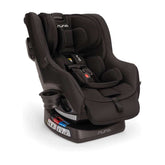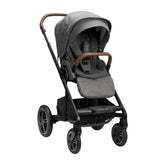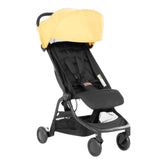6 Common Childhood Illnesses and When to Call the Doctor

All kids are bound to fall ill at some point. Young children are far more vulnerable to infection than adults and older children. Their inexperienced immune systems simply haven’t been exposed to as many germs. Plus, toddlers like to put their hands on everything (and then in their mouths), as well as play in close proximity to one another, increasing their exposure to contagious pathogens. As a parent, the more knowledgeable you are about common childhood illnesses and current treatment guidelines, the better prepared you’ll be to recognize what may be ailing your child and how to handle it. Let’s take a look at some of the most common childhood illnesses and how to help kids feel better quickly.
Childhood Diseases: Most Common Childhood Illnesses List
1. Common Cold
It’s called the “common” cold for a reason – young children (especially those in daycare) can get six to eight colds per year. Signs of a cold may linger for up to ten days, including congestion, cough, and a runny nose. Colds are the result of a viral infection of the upper respiratory tract and never require antibiotics. However, it’s possible that a bacterial sinus infection may develop alongside it, in which case your pediatrician may decide antibiotics are prudent based on your little one’s symptoms and a physical exam.
The FridaBaby 3-in-1 True Temp Thermometer for rectal, oral, or armpit use will be your fever-fighting BFF. It delivers a 10-second quick read with an automatic second check, so you don't have to second guess. Plus the Parent Proof Stopper and LED lights make tush temp checks worry-free.

FridaBaby 3-in-1 True Temp Thermometer
2. Sore Throat
Sore throats are not uncommon in young children and are typically a symptom of either a viral or bacterial infection. A viral infection usually resolves on its own within about a week to ten days with no specific medication needed. The best treatment for a sore throat caused by a virus is to keep your child comfortable, resting, and hydrated. Your doctor may suggest acetaminophen or ibuprofen to relieve any associated pain or fever. For hand, foot, and mouth disease (which is extremely infectious), keep your child at home until the sores begin to heal.
For a sore throat caused by a bacterial infection (for example, streptococcus, a.k.a strep), your child will need an antibiotic. Accurate diagnosis requires an in-office rapid test or lab culture of a throat swab. Strep can’t be diagnosed by observation alone. If your child has been prescribed antibiotics, it’s essential that they finish the full course of the medication, even if they start feeling better. Strep is less common among infants and toddlers, though it is possible for them to become infected. It typically spreads via sneezes and coughs, as well as by touching toys handled by an infected child. Washing hands, covering coughs and sneezes with a tissue or upper arm (instead of a hand), disinfecting toys, and not sharing drinking cups are the best ways to try to prevent the spread of strep.
The FridaBaby MediFrida Accu-Dose Pacifier and Medicine Dispenser deliver the full dose through a soft, familiar paci that sends medicine to the side of the cheek, as recommended by doctors, bypassing your baby's taste buds to prevent spit-ups so that baby swallows the full dose. MediFrida is the only paci-style baby medicine dispenser that doubles as a real pacifier, so dosing doesn't disrupt your baby's soothing schedule.

FridaBaby MediFrida Accu-Dose Pacifier and Medicine Dispenser
3. Urinary Tract Infection (UTI)
Urinary tract infections can affect children of all ages, from babies to teenagers. Painful or burning urination, bedwetting or accidents by a toilet-trained child, side/back/abdominal pain, and a frequent urge to urinate are all signs of a possible urinary tract infection. Some UTIs have almost no symptoms. In fact, a young child with a high fever and no other symptoms has a 1 in 20 chance of having a UTI. The frequency of UTIs in girls is much greater than in boys. A one- to two-week course of antibiotics is typically required to eliminate and prevent the spread of the infection, as well as to reduce the chances of kidney damage.
4. Ear Pain
Ear pain can be the result of a number of causes. Teething pain, sinus pressure or infection, swimmer’s ear, viral infections, and bacterial infections can all trigger ear pain. An in-office pediatrician visit is the best way to accurately determine the cause and course of treatment. During this visit, your child’s doctor will discuss risk factors and how to reduce them. They’ll also have you monitor your child and suggest types of treatment to relieve symptoms and ensure your child is recovering without pain.
In many cases, ear pain resolves on its own without the use of antibiotics. However, that doesn’t mean you shouldn’t still see your doctor. Your pediatrician can prescribe numbing drops and recommend over-the-counter pain relievers to treat symptoms, which can help the child feel better as she recovers.
5. Bronchitis
Bronchitis is an inflammation of your child's large breathing tubes or airways, called bronchi. Children typically develop an acute form of bronchitis, which is an inflammation of the mucous membranes of their bronchial tubes. It is usually a relatively mild condition. Acute bronchitis often begins with a dry, non-productive cough that eventually becomes an abundant, mucus-filled cough that may cause your child to gag or vomit. Bronchitis often follows a cold.
Bronchitis is typically diagnosed based just on your child's medical history and a physical exam, but in some cases, tests or chest x-rays may be necessary to rule out other diseases. Most cases of acute bronchitis resolve on their own, but symptoms usually last for a week or two. Keep your child resting, comfortable, and hydrated while they recover.
FridaBaby NoseFrida Saline Snot Spray is an all-natural, simple saline solution. And by simple, FridaBaby means just two ingredients: sea salt and water. That's all! The small applicator tip is specially designed for the tiniest of tots. Use as often as needed without any harmful side effects!

FridaBaby NoseFrida Saline Snot Spray
6. Gastroenteritis (Stomach Flu)
Gastroenteritis, a.k.a. the stomach flu, is a common infection that causes nausea, vomiting, diarrhea, and belly cramps. Gastroenteritis occurs when viruses, bacteria, or parasites infect the stomach or intestines, triggering inflammation. Rotavirus is responsible for many cases of stomach flu in children (the rotavirus vaccine can help prevent them). Many of the pathogens that cause gastroenteritis are highly communicable.
Vomiting, diarrhea, and sometimes fever are the most common signs of gastroenteritis. A pediatrician can normally diagnose stomach flu by hearing about the symptoms. Additional tests are rarely necessary. Children typically recover within a few days with rest and plenty of hydration.
Childhood Illnesses and Diseases: When to Call the Doctor
While these and most other childhood illnesses and diseases resolve on their own, some symptoms may merit a call to the doctor. Monitor your child closely for any of the following:
- High fever. Infants younger than two months old who have fever of 100.4°F need immediate medical attention, even if they appear well and show no other signs of being ill. For babies 2 to 6 months old, call your pediatrician for a fever higher than 101℉. For older children, the threshold is 103℉.
- No appetite. While it’s normal for sick children to not feel very hungry, a child who eats or drinks less than half of what they’d normally consume for more than two days should see a doctor.
- Trouble breathing. Long pauses between breaths, fast breathing, or labored breathing require immediate medical attention.
- Dehydration. A child’s small body can become dehydrated very quickly. If they’re urinating fewer than three or four times daily or seem lethargic, contact your doctor.
- Chronic medical conditions. Children with a suppressed immune system, asthma, diabetes, or other pre-existing condition may require additional monitoring if they contract a virus that could further compromise their health.
Disclaimer: The information on our site is NOT medical advice for any specific person or condition. It is only meant as general information. Please contact your health provider if you have any medical questions or concerns about your child or yourself.









